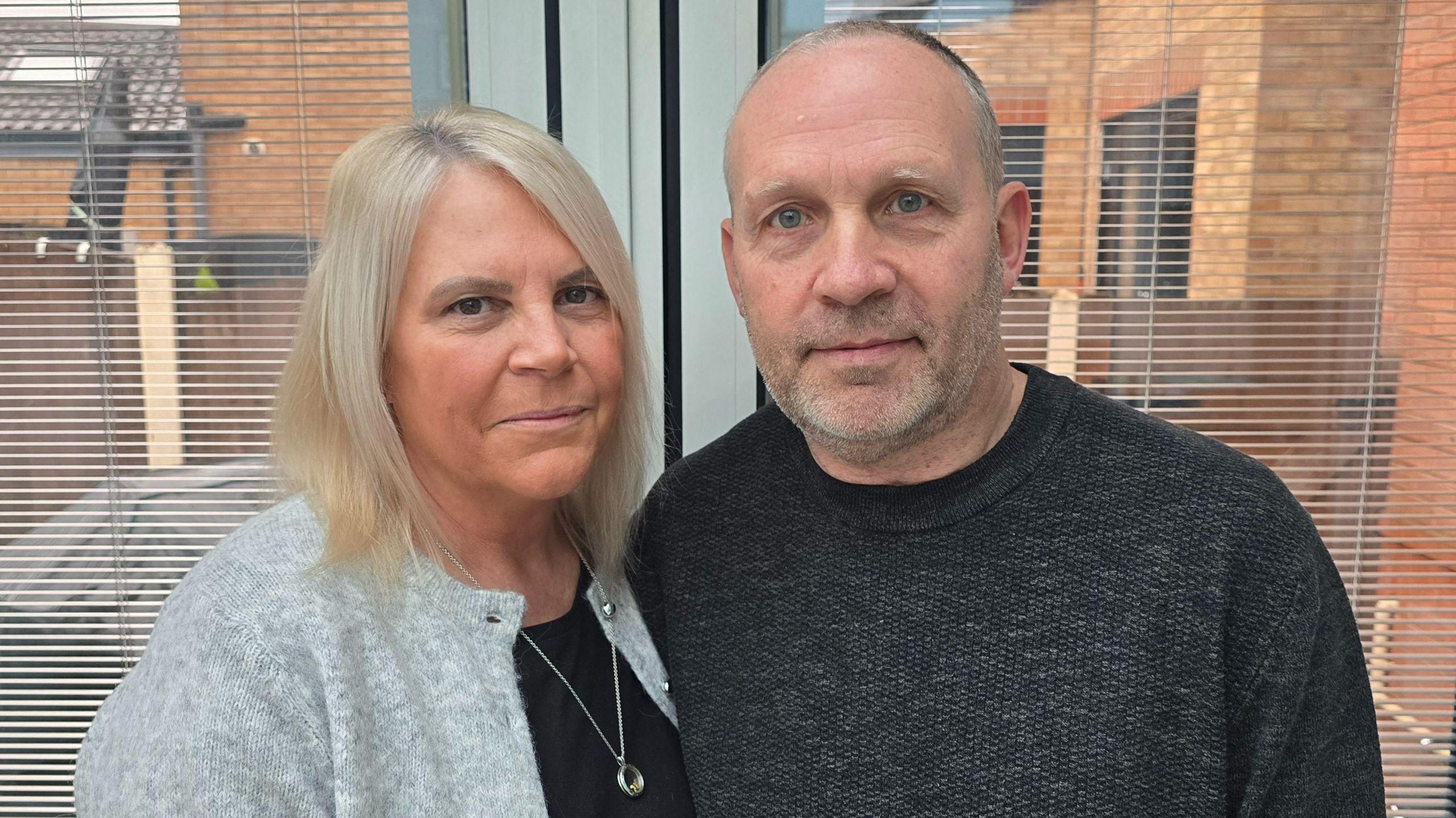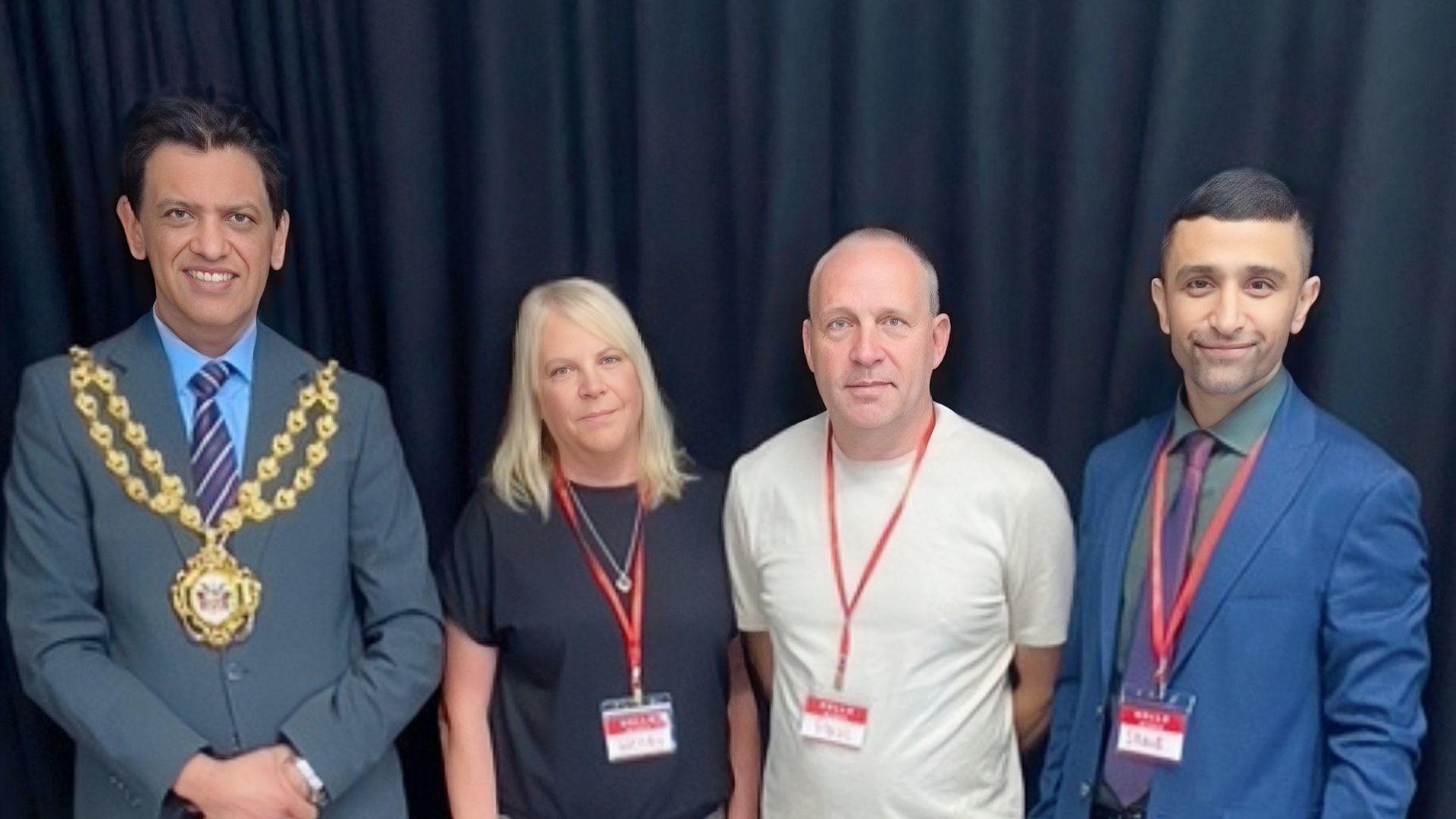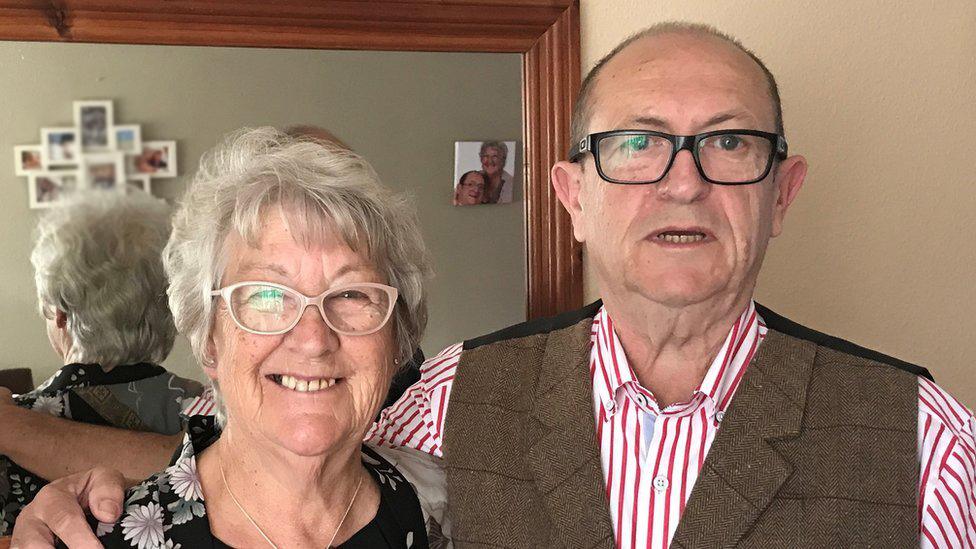'Fostering is a learning curve but a privilege'

Wendy and Paul Leech say the rewards of fostering continue for years after a child leaves their home
- Published
Wendy Leech was always adamant she was not going to work with children.
Her mum was already a foster carer when she was born, and her sister followed in her mother's footsteps.
Instead Wendy, from Oldham in Greater Manchester, went into a "really good job" in the airline industry.
Thirteen years ago, though, after their own children had flown the nest, Wendy and her husband Paul felt the same calling.

Oldham Mayor Zahid Chauhan OBE (left), and Oldham Council's cabinet member for children and young people Shaid Mushtaq (right) said Wendy and Paul Leech were "inspiring"
"I think you wait for the right time," Wendy, who is now 55, explained.
"But really, there's never a right time - it's just something you go for.
"We've never looked back. We've enjoyed all of it - it's amazing."
Wendy and Paul, who also run a breakfast and after-school club, have dealt with all kinds of challenges as foster carers.
They are inevitable when you offer a stable home to children who have come from often difficult or traumatic backgrounds.
Wendy remembered that the very first child who came to their home, from Somalia via London, "did not speak a word of English" when he arrived.
The little boy was only supposed to stay for one weekend but ended up spending seven months with the Leeches.
"We were brand new foster carers and we were like 'Oh no, what've we done here?", she said.
"That was a massive learning curve."
Wendy and Paul said they threw themselves into connecting with him, using Google to translate between English and Arabic.
"I mean, everything was a new experience to him from living in Somalia," Wendy added.
"There was no shopping malls, even roads and things like that, everything was new."
The couple compared it to fish-out-water movies Elf and Crocodile Dundee.
Wendy said: "Your sense of humour gets you through it.
"It was just seeing the massive difference we made with him - and it is challenging - but every job has its challenges, doesn't it?"
Wendy and Paul have now provided a loving home to about 30 children, sometimes up to five at a time.
They are also part of a new initiative called the Mockingbird programme, in which foster families within Oldham provide each other with support and advice.
The Leeches are exactly the kind of people local authorities are desperate to recruit.
Lisa Lawson, recruitment officer for Oldham Council's fostering service, said more carers were needed in Greater Manchester, particularly for older children and sets of siblings.
She told the BBC that, since the pandemic, enquiries about becoming foster carers had decreased.
"What we're finding is more adult children are living at home," she explained.
"And it's become more expensive to buy houses, so there's less and less people available to become foster carers."
As for the Leeches, it is clear how much they gain from helping children and young people.
They still foster a 19-year-old woman who first came to their home, with her brother, when she was six.
She is now at university, studying nursing.
Wendy said: "She's talking about moving on to independence, getting her own place.
"But she knows we'll always be there for her, and she can always come round for a tea or for dinner, or just for a chat or anything like that.
"The rewards don't stop when the children leave you - it's something that just carries on and on."
Get in touch
Tell us which stories we should cover in Greater Manchester
Listen to the best of BBC Radio Manchester on Sounds and follow BBC Manchester on Facebook, external, X, external, and Instagram, external. You can also send story ideas to northwest.newsonline@bbc.co.uk, external
Related topics
More like this
- Published13 January 2024
